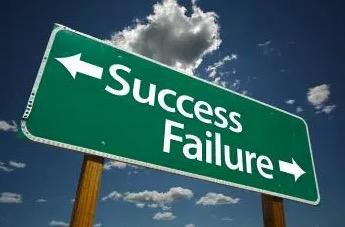Once again, the news is bad for the millions of people who are suffering from herpes simplex virus type 2 (HSV-2), much the same as I reported in September 2017, when Genocea's experimental herpes vaccine GEN-001 was dropped after Phase II clinical trials.
Today, less than a month after I interviewed Larry R. Smith, Ph.D., Vical’s Senior Vice President of Research about the prospects for VCL-HB01, the company's experimental therapeutic herpes vaccine, Vical announced that in randomized controlled Phase II clinical trials VCL-HB01 was ineffective in reducing outbreaks in people who were infected with HSV-2. This is just one more example of a vaccine failing in humans after looking promising in animal models of the infection.
This model provided proof of concept that our vaccine candidates possessed therapeutic efficacy because guinea pigs (in contrast to mice) are prone to lesion recurrences due to previous-infection with HSV-2.
Larry R. Smith, Ph.D. May 13, 2018
The Phase II study included 261 healthy HSV2-infected participants, between 18 and 50 years of age, who had experienced between four and nine to nine outbreaks per year. Although the vaccine was found to be safe, not surprising for subunit vaccine, (1) it had no impact upon the number of outbreaks
Furthermore, Vical announced that it was discontinuing its entire herpes vaccine research effort, a profound disappointment for patients who had hoped for any good news but instead got only bad.
WHERE DOES THIS LEAVE US?
This news leaves herpes sufferers in a bad place. When I spoke with the University of Pennsylvania's Dr. Harvey Friedman about his vaccine candidate, Dr. Friedman said that "In guinea pigs, the two perform [the other being GEN-003] similarly."
Friedman also commented on the difference between subunit and live attenuated (2) vaccines:
Live attenuated vaccines contain many more proteins than subunit vaccines, so they are perhaps more likely to be effective. But, this can be at the expense of safety. Live attenuated vaccines can (rarely) cause infection. Subunit vaccines cannot.
But, for herpes sufferers none of this matters, since the Penn vaccine is being developed for prevention, not treatment of genital herpes. Dr. Friedman told me "Right now, I don't believe that the vaccine would work well enough to be therapeutic."
When I wrote about Admedus' candidate in May 2017 (See Herpes Vaccine From Down Under: Not Much Excitement For Admedus) the news was lukewarm at best. Even the company didn't sound all that enthusiastic about its vaccine. In Phase II trials "[a] positive immune response to the vaccine was seen in most [of the 34] subjects."
I'm sorry that the news is not better, but these companies are working on something that is very challenging, perhaps impossible. There has never been a vaccine for an infectious disease, and, based on today's news it is unlikely that we will be seeing one anytime.
Vaccine and drug development is a lengthy, high-risk, and very expensive process with far more failures than successes. It is not a matter of pushing a few buttons and having a product come out the other end. That may work for iPhones, but it does not for drugs. NOTES:
(1) A subunit vaccine, also known as a synthetic vaccine, contains selected antigens from the virus, but no whole virus particles. Subunit vaccines cannot cause infection, but also provoke a weaker immune response that live-attenuated vaccines, which contain intact viruses that have been weakened so that they do not cause infection but produce a stronger immune response and better protection. There have been a small number of cases where live-attenuated vaccines have caused infections.
(2) At this time, the only company that I am aware of that is pursuing a live-attenuated vaccine is Rational Vaccines.
UPDATE 6/13 Statement from Rational Vaccines about their future plans:
Rational Vaccines remains committed to ending the spread of the Herpes virus. The company is currently in the process of moving forward with classical clinical development plans, including engaging established contract research organizations and contract manufacturing organizations, filing worldwide INDs – focused initially in the U.S. - and performing clinical trials to international good clinical practice standards.




